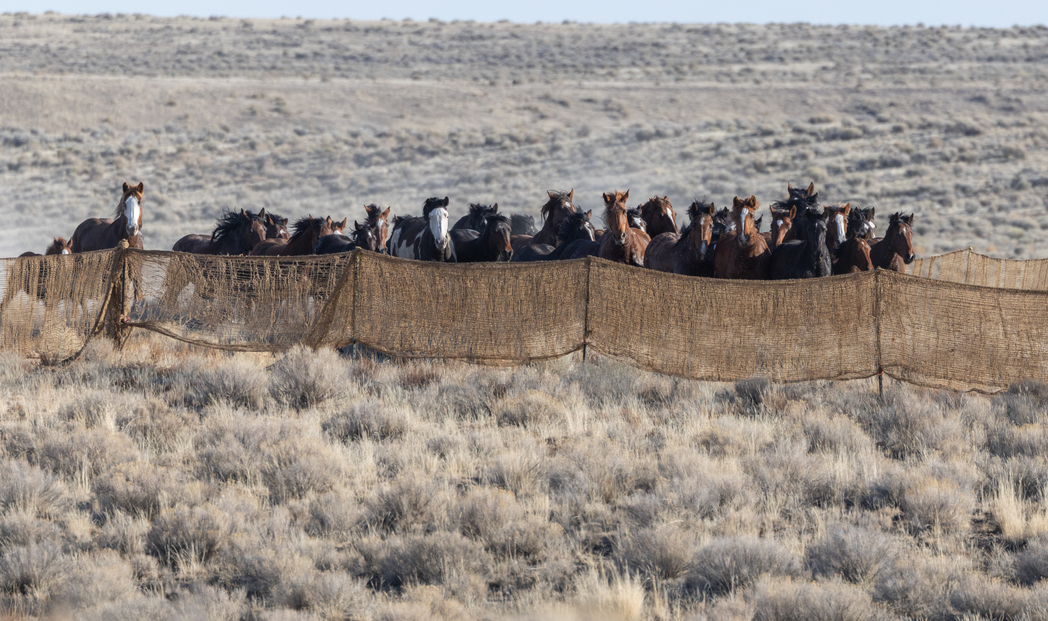

Advancing Humane Population Management for Wild Horses
Fertility control is a humane and scientifically proven method for managing wild horse populations. Through rigorous research and implementation, AWHC is leading the way in promoting fertility control as an effective alternative to inhumane roundups. Discover the science behind fertility control and how it benefits wild horse populations.





Learn about the research and scientific principles that support fertility control as a humane population management strategy.
Fertility control involves the use of vaccines like PZP (Porcine Zona Pellucida) to prevent pregnancy in wild mares. The vaccine induces an immune response that blocks fertilization, effectively reducing population growth without affecting natural behaviors or social structures.
Over 30 years of scientific research supports the effectiveness of PZP as a fertility control method. Studies have shown that PZP has a success rate of over 90% in preventing pregnancies, making it a reliable and humane alternative to traditional population control methods.
Research has demonstrated that PZP is safe for wild mares, with no long-term health effects. The vaccine does not interfere with hormone levels or natural behaviors, ensuring that treated horses continue to live and interact normally within their herds.
Fertility control is not only humane but also cost-effective. The cost of administering PZP is significantly lower than the expenses associated with roundups, long-term holding facilities, and the care of captured horses. This makes fertility control a sustainable solution for managing wild horse populations.
Your involvement is key to safeguarding wild horses and burros.
Your contribution helps fund our advocacy, litigation, and protection initiatives.
Urge your representatives to support policies that help protect wild horses and burros.
Join our team of dedicated volunteers and make a direct impact.
Discover how AWHC is leading efforts to research and implement humane fertility control methods for wild horses.
AWHC supports and conducts pioneering research on fertility control to ensure its effectiveness and safety. Our research programs involve collaboration with leading scientists and institutions to advance the understanding and application of fertility control methods.
AWHC is actively involved in the implementation and monitoring of fertility control programs. By administering PZP to wild mares and tracking their health and behavior, we ensure the success and sustainability of these programs.
AWHC advocates for the adoption of fertility control as a standard practice in wild horse management. Through education and outreach, we aim to raise awareness about the benefits of fertility control and encourage its widespread use.